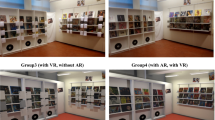Abstract
Each year many people suffer an accident or illness which leaves them with a permanent memory impairment. As a result they will fail to remember to do things, making it difficult for them to maintain employment or independent leisure activities. Conventional memory aids offer little assistance because their use depends on relatively normal memory functioning. A system designed specifically for memory-impaired people has been developed recently in the USA, however. ‘NeuroPage’ uses a combination of computing and telecommunications to store and transmit reminders to a pager worn by the user. The system is designed to place minimal demands on memory. This paper presents a case study evaluation of NeuroPage in use by a young man with a severe memory impairment. The pager messages led to a marked increase in the probability that he would carry out his intended tasks. Issues of usability and acceptability of the system to the user and his family are also reported. A number of possible developments to the system are considered, including the incorporation of artificial intelligence and context-sensitivity. Broader issues in the design of memory aids for people with and without memory impairments are also considered, as well as the potential role of memory-impaired people in the design of technology for their own use.
Similar content being viewed by others
References
Medical Disability Society. Working party report on the management of traumatic brain injury. Royal Society of Physicians, 11 St. Andrew's Place, Regents Park, London NW1 4LE. 1988.
Parkin AJ. Memory and Amnesia: An Introduction. 2nd edn. Blackwells, Oxford. 1997.
Kapur N. Memory aids in rehabilitation. In: AD Baddeley, BA Wilson, FN Watts (eds) Handbook of Memory Disorders. Wiley, Chichester. 1995.
Harris J. Ways to help memory. In: BA Wilson, N Moffat (eds). Clinical Management of Memory Problems. 2nd edn. Chapman & Hall, London. 1992.
Hersh N, Treadgold L. NeuroPage: The rehabilitation of memory dysfunction by prosthetic memory and cueing. Neuropsychological Rehabilitation. 1994; 4(3): 187–197.
Wilson BA, Evans J, Emslie H, Malinek V. Evaluation of NeuroPage: a new memory aid. Journal of Neurology, Neurosurgery, and Psychiatry. 1997; 63: 113–115.
Aldrich FK, Evans J, Wilson BA. Computer support for a client with severe memory impairment. 1998.
Lamming M, Brown P, Carter K, Eldridge M, Flynn M, Louie G, Robinson P, Sellen A. The design of a human memory prosthesis. The Computer Journal. 1994; 3: 153–163.
Wright P, Rogers N. Reading and writing in electronic diaries. Interfaces. 1997; 36: 23–25.
Negroponte N. Agents: from direct manipulation to delegation. In: JM Bradshaw (ed) Software Agents. American Association for Artificial Intelligence. 1997.
Schuler D, Mamioka A (eds) Participatory design: principles and practices. Lawrence Erlbaum, Hillsdale, NJ. 1993.
Webb BR. The role of users in interactive systems design: when computers are theatre, do we want the audience to write the script? Behaviour and Information Technology. 1996; 15(2): 76–83.
Scaife M, Rogers Y, Aldrich F, Davies M. Designing for or designing with? Informant design for interactive learning environments. In: Proc. of CHI '97, Conf. on Human Factors in Computer Systems, Atlanta, GA. ACM Press. 1997. 343–350.
Rogers, Y, Bellotti V. Grounding blue-sky research: how can ethnography help? Interactions. 1997; iv.3: 55–63.
Author information
Authors and Affiliations
Corresponding author
Rights and permissions
About this article
Cite this article
Aldrich, F.K. Pager messages as self reminders: A case study of their use in memory impairment. Personal Technologies 2, 1–10 (1998). https://doi.org/10.1007/BF01581841
Issue Date:
DOI: https://doi.org/10.1007/BF01581841




